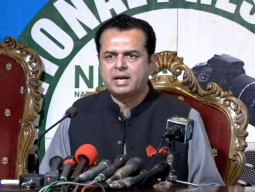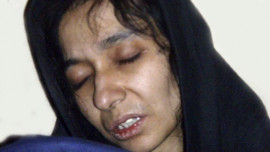
The rules of electoral finance lie at the very heart of the democratic process. These regulations are put in place to ensure that elections, by virtue of their cost, do not become the exclusive domain of the filthy rich. Our criminal neglect of electoral finance is one of the reasons for the kind of democracy we live in. Requiring the Election Commission to implement this Supreme Court verdict will require capacity that the Election Commission does not possess. But this is where friends of democracy should be directing their energies if we really want to change the quality and calibre of those in power.
The lacklustre leadership in control of the country consists of those people who have the money and clout to contest and win elections, which in Pakistan are neither won nor contested on the basis of competence or the policy views held by the candidates. Instead, contested on the basis of power and money, those that have neither, stand spectacularly slim chances of ever winning an election. So, we can automatically write-off most of the upstanding members of society. Therefore, until we change (or implement) the rules of financing the electoral game, we are likely to end up with the corrupt but powerful in the national driving seat.
What could be sadder than a country that has to resort to thinking of who is the least corrupt, least dishonest or least incompetent when trying to decide who should hold one of the highest offices in the land? Pakistan took a loud collective groan the day Raja Pervaiz Ashraf was elected prime minister. He is the man most Pakistanis associate with the energy crisis, unfulfilled promises and unlawful financial gain at the expense of millions of people who live their lives between loadshedding cycles. Even amongst the most ardent supporters of democracy, there is a deep sense of discomfort with the candidate that the democratic process has put on the prime ministerial throne.
As a result, some are yearning for the boots and others are calling for early elections. But we have tried the boots before and they don’t fit this country well. We could have new elections but they are likely to put more ‘Raja Rentals’ in parliament. The problem lies not with just this man who is now prime minister, but the large majority of those who (dis)grace the halls of parliament. Alternatives to Ashraf included a health minister accused of involvement in a narcotics scam, a former defence minister on whose watch we saw the largest number of plane crashes in the history of Pakistan but never once a public apology and a foreign minister who can afford to buy extremely expensive handbags but whose husband reportedly cannot afford to pay electricity bills.
Hardly an inspirational cabal of leaders. Unfortunately, these and more like them are the only options we have. So those of us who do not suffer from amnesia and believe that democracy is the only sustainable solution for Pakistan should spend less time complaining about ‘unrealistic’ electoral laws and put more effort towards educating citizens about having them implemented. Changing the rules of the money game in elections can be a powerful tool for changing the face of democratic politics in Pakistan.
Published in The Express Tribune, July 3rd, 2012.
COMMENTS (13)
Comments are moderated and generally will be posted if they are on-topic and not abusive.
For more information, please see our Comments FAQ







1732355030-0/BeFunk_§_]__-(41)1732355030-0.jpg)


1732356840-0/Copy-of-Untitled-(1)1732356840-0-270x192.webp)






Elections are a very costly affair. In case of Pakistani politics, candidates have to come up with their own funding. In some cases they have to pay party leadership to get party tickets to run. The campaign also costs millions especially in the rural areas. As there is low population density, distances are large and candidates have to travel around their constituencies. On election day, vehicles need to be provided to voters to get to the polling stations, polling agents need to be paid and food needs to be arranged for all throughout the day. All in all running for a national assembly seat may cost a 100 million rupees or so.
When a candidate wins, he wants to be with the ruling party and starts to lobby for a ministry. The whole idea is to recoup the elections expense and make some more money to pay for the next election. During the tenure of the assembly or more so in case you are appointed a minister, there is a huge expenditure on food and entertainment. There is always a line of people who want some sort of favor and some of these may have traveled long distances to get to the MNA, Senator, MPA or minister. They all expect to be fed and some may need to be provided with accommodation for the night. The single biggest expense is for food.
All in all the system needs to be changed, but it will not be an easy fix.
@Rafi Ka Deewana: I agree with you on each point. You know I am collecting all my fav songs and digitally cleaning the noise from each of them. Even though some of them are available in the voice of Sonu and Anuradha but I want the real thing not the copy. Cheers, "Chalkaye Jaam" Mirza
MIrza and Nadir: I guess I should've explained a bit more. The point is, basic human behavior is the same all over the world. Americans or Indians aren't any better or worse or smarter than Pakistanis. It's the system, the coach, the CEO, and the captain that makes them different. Nehru, good or bad, was a charismatic leader and set India towards democracy. Had India not have a leader like him, they could very well be going Pakistan's way as they also have enough of fanatics, and radicals.
In general, I don't like when we start blaming the citizens - rich or poor - as they have been made that way by the system.
And about Rafi and Lata - I love the purity. Can't stand Sonu or anyone singing his songs.
Moderator, why did you have to trim my post so badly out of shape?
@Rafi Ka Deewana: Tax systems in Western countries are a mess, with tax evasion rampant amongst the rich. Yes, no one likes paying taxes or their bills, but they are not celebrated and aspired towards as it is in Pakistan or as is the case in many developing countries. The problem is that in Pakistan, even very well educated people have no qualms pulling strings, evading taxes and generally making a mockery of the law. They are encouraged to do so, with social institutions such as parents, families, schools etc encouraging such behaviour.
PK is a very STRANGE country!
@Rafi Ka Deewana: Sir you are no Deewana at all. In fact you make a lot of sense. BTW, I am also in love with Rafi and Lata a lot. I love to pay taxes because God has given me the position to be able to pay taxes. I would rather pay the taxes than receive the benefits. Thanks and regards, Mirza
@Nadir: Human beings are the same everywhere. No one wants to work hard and no one wants to pay taxes. The difference is in the system. In most western countries, the system is set so well that you can't get away whereas in our part of the world, you can. So blaming individuals wouldn't do much good. You have to focus on system development for which you need only one charismatic leader. Until Pakistan produces that, there is no hope. It has failed so far, and the latest potential, IK had been tried yet.
In democracy, the maturity comes very slowly. The voters are like kids in the beginning. "I want this" - but the moment the kids get it, they want something else, and have no patience. But once the maturity comes, it works out fine
So, if Pakistan wants to go a true democratic way, it has to understand that the voters will make mistakes in the beginning, and it should be willing to wait until the voters mature.
There are no short cuts in democracy, and it never has been perfect.
The fundamental problem here is that people splashing money, evading taxes, not paying their bills and generally breaking the law and getting away with it remain admired by many and people actually aspire to become the next land grabbing Malik Riaz or the next tax dodging industrialist. As long as there is social capital and respectability in not paying your bills, not paying your taxes and picking up the phone to get things done rather than cuing up, attitudes will not change. And despite all the clamour and sloganering of a new Pakistan and impending change, we still have the vast majority looking for short cuts, a state which gives but should not be expected to take.
Elections are oversight by the masses and a sieving process. In most countries of the world where there are regular elections without any interferences by unelected govt servants this process is working great. Let us trust the judgment of voters as they are the best judge for their own future. Obviously the urban elite and the majority of rural heartland of Pakistan differ in their choices but this is what makes a democratic country strong. The argument that I don’t like the current ruler only shows the mental disease of speaker and hatred toward the electorate. There should never be any attempt to de-legitimize the election results based upon the laws one does not like. The change in laws or implementation is the job of election commission headed by the judges and not that of the winner of the elections.
This is a brilliant peace! It really is the time for civil society to join hands for public accountability. there is really no point complaning about corruption without any palpable effort on part of the public to scrutinize the records of office bearers..